| “There is an enormous potential to explore between our two countries.” Words MAXMILIAN WECHSLER Her Excellency Mrs Ana Lucy Gentil Cabral Petersen took her post as Brazilian Ambassador to Thailand in February of last year. WHEN we met at her bright, sunsplashed office on the 34th floor of Lumpini Tower on Rama 4 Road, she displayed a charming humility that was refreshing in someone with such impressive credentials and title. “I am not a good talker, so maybe you won’t have much to write,’’ said the Ambassador with a winning smile. As it turned out, the conversation took its own natural course and there was little need for prepared questions. |
Mrs Petersen showed a thorough knowledge of all the usual subjects, and on top of that she has a good sense of humor and truly pleasant personality. She is concurrently Brazil’s Ambassador to Laos and Cambodia as well as Thailand. We were joined by her long-time friend and colleague, Minister Counsellor Jose Luiz Vieira.
Background
| “I was born in the northern coastal city of Fortaleza in the state of Ceará, but my family lived in Rio de Janeiro most of the time. My parents had seven children; there are only four of us now,” said the Ambassador. She always wanted to be a diplomat, but actually first tried her hand at journalism. “After a time I realized that wasn’t for me, and I decided to try to join the Ministry of Foreign Affairs (MFA). This is a fierce competition, not an easy thing in Brazil, but I took the exams and did well. “In 1978 I entered the Brazilian Diplomatic Academy at the Rio Branco Institute in Brasilia, which is also the location of the MFA and all government offices in Brasilia. At the time I had a married sister living there and a brother working for the Senate.” Two years later she was Third Secretary at the MFA. Her assignments abroad include Washington DC; Budapest, Hungary; Kingston, Jamaica; Geneva, Switzerland; Asuncion, Paraguay; Montevideo, Uruguay and Luanda, Angola, where she took her first ambassadorial post. Her last position before coming directly to Thailand was at Brazilian Consulate-General in New York. Asked which assignment had been most challenging, she said probably Paraguay or Uruguay. “Both of these countries presented quite a challenge, I can’t say one more than the other. Both share a border with Brazil, and there are very strong interregional links through MERCOSUR Mercado Común del Sur, also known as the Southern Common Market.” |
MERCOSUR is an economic and commercial grouping of countries in South America comprising Argentina, Brazil, Paraguay, Uruguay and Venezuela, as well as associate countries like Chile, Bolivia, Colombia, Ecuador and Peru.
“One difference is that with Paraguay we also share the huge Itaipu Dam one the biggest hydro-electric dams in the world, located on the Paraná River.
“Angola also presented a challenge. Like Brazil, Angola is a former Portuguese colony, so besides other tribal dialects, Portuguese is the official language. Many slaves were sent from Angola to Brazil, and that’s a big reason why Brazil is so ethnically and culturally diverse, much more so than Thailand. You see people of every color in Brazil. We also received many migrants from Europe and from Arab countries.
“Many people may not know that Brazil also has the largest population of people of Japanese descent outside Japan in the Americas – about 2.5 million people. The Japanese migration to Brazil started around the beginning of 20th century. Those who arrived often married with Brazilians. People of Japanese descent, nisseis as we say, are concentrated in the southeast of the country, in Sãn Paulo, our richest state.
“You ask me about politics. We had general election in Brazil in October last year. Our new President, Jair Bolsonaro, began his term on January 1, and so did the vice-president, senators, governors, house representatives and so on. Now the new government has different political ideas from the previous administration that was in power. That’s democracy! The population of Brazil is about 210 million.”
“One difference is that with Paraguay we also share the huge Itaipu Dam one the biggest hydro-electric dams in the world, located on the Paraná River.
“Angola also presented a challenge. Like Brazil, Angola is a former Portuguese colony, so besides other tribal dialects, Portuguese is the official language. Many slaves were sent from Angola to Brazil, and that’s a big reason why Brazil is so ethnically and culturally diverse, much more so than Thailand. You see people of every color in Brazil. We also received many migrants from Europe and from Arab countries.
“Many people may not know that Brazil also has the largest population of people of Japanese descent outside Japan in the Americas – about 2.5 million people. The Japanese migration to Brazil started around the beginning of 20th century. Those who arrived often married with Brazilians. People of Japanese descent, nisseis as we say, are concentrated in the southeast of the country, in Sãn Paulo, our richest state.
“You ask me about politics. We had general election in Brazil in October last year. Our new President, Jair Bolsonaro, began his term on January 1, and so did the vice-president, senators, governors, house representatives and so on. Now the new government has different political ideas from the previous administration that was in power. That’s democracy! The population of Brazil is about 210 million.”
Coming to Thailand
“The first time I came to Thailand was in 2009, for a meeting in connection with the United Nations Council of Human Rights. I used to be head of the Human Rights Department in Brazil’s MFA. We had a conference here regarding neglected health diseases. After two days of meetings I spent a very nice weekend here in Bangkok. The city was a bit different then than now, quieter and less hectic, but just as interesting.
“When the former Brazilian Ambassador completed his time here and the position was offered to me I was delighted. From a professional perspective it is a great move. I had never worked in Asia before and it’s important to have the experience. As everybody in the world knows, this is a very dynamic region with fantastic economic development.
“The Brazilian MFA sets a term for Ambassadors from two to five years. Of course, if it’s in the interests of my country I could be sent somewhere else tomorrow, but normally we stay about three years in each assignment. We don’t necessarily go back to Brazil after every posting abroad; we can go straight to another country if needed.”
“When the former Brazilian Ambassador completed his time here and the position was offered to me I was delighted. From a professional perspective it is a great move. I had never worked in Asia before and it’s important to have the experience. As everybody in the world knows, this is a very dynamic region with fantastic economic development.
“The Brazilian MFA sets a term for Ambassadors from two to five years. Of course, if it’s in the interests of my country I could be sent somewhere else tomorrow, but normally we stay about three years in each assignment. We don’t necessarily go back to Brazil after every posting abroad; we can go straight to another country if needed.”
Thailand
“Thailand and Brazil have a lot in common, and not only the tropical weather,” said the Ambassador. “Both countries are rapidly developing, and there are similarities in the types of industries being promoted. For instance, Thailand has an enormous production of cars, especially Japanese and Korean models. The same is true of Brazil. So there is a lot of trade both ways in auto parts, including small engines and electronic components. However, our main export to Thailand is soybeans. The trade between our two countries both ways totals about US$3.5 billion, and we believe there is an enormous potential to explore between the two countries.”
When asked about the export of Brazilian coffee to Thailand, the Ambassador said that’s not really happening at the moment. “We want to export more livestock products like live cattle and premium beef. Overall, we are promoting a more ambitious business and also cultural agenda. We believe there are opportunities for that. Now we are seeing more interest from Thai companies in investing in Brazil. For example, last year one Thai company bought a seafood processing plant in Brazil. Another company invested in a petrochemical plant. All this increases the business relationship and we at the embassy are doing all we can to encourage it.”
People to people exchanges are also a priority for Mrs Petersen during her time in Thailand. She’s devoted a lot of energy to preparations for social activities that strengthen the Thai-Brazilian relationship, and these are invariably well organized and well attended.
“We recently celebrated the 60th Anniversary of Thailand- Brazil Diplomatic Relations 1959- 2019 at Vithes Samosorn Hall, located at the Thai Ministry of Foreign Affairs in Bangkok. It was a fantastic opportunity for Brazilians in Thailand to meet,” the Ambassador said. As a part of the celebration of the anniversary we organized a Brazilian film festival in Bangkok called Music and Moving Images of Brazil.
“The film festival was held from April 25 to 28 at the Auditorium Room on the 5th floor of the Bangkok Art Cultural Centre. It was a delightful journey into Brazilian popular music and culture. Among the films screened were: A Música Segundo Tom; Tropicália; Tim Maia; and Elis.
“This year as every year we will have a night of Latin music in cooperation with Mahidol University and the Thailand Philharmonic Orchestra. This year we are responsible for organizing the event presented by a Brazilian conductor, Ms Ligia Amado. She will conduct classics from Brazilian composers like Villa Lobos. The event will take place around the beginning of July.
“We are also planning a business seminar to bring investors and business people together to discuss ways to boost the economic relationship between Brazil and Thailand. This event is not yet definite but should be in the second part of the year.
“Thailand is of course very attractive for tourists. You hear a lot about the great food and natural beauty. A lot of Brazilians want to know more about Thailand and Asia in general. Last year about 70,000 thousand Brazilians visited Thailand. This is not that many compared to some countries, but if you remember the distance it’s really quite a lot. We are on the other side of the world and in different hemispheres.” There aren’t any direct flights between the two countries and Brazilian airlines don’t operate scheduled flights to Thailand.
“There are far less Thais visiting Brazil, but the Embassy is actively promoting tourism to my country. There is so much to see and do. Thai nationals don’t need a visa to visit Brazil. Not too many Thai nationals reside in Brazil. There are about 500 Brazilians registered as residents with our embassy, but I believe there are actually less because some of our citizens don’t tell us when they are leaving.”
When asked about the export of Brazilian coffee to Thailand, the Ambassador said that’s not really happening at the moment. “We want to export more livestock products like live cattle and premium beef. Overall, we are promoting a more ambitious business and also cultural agenda. We believe there are opportunities for that. Now we are seeing more interest from Thai companies in investing in Brazil. For example, last year one Thai company bought a seafood processing plant in Brazil. Another company invested in a petrochemical plant. All this increases the business relationship and we at the embassy are doing all we can to encourage it.”
People to people exchanges are also a priority for Mrs Petersen during her time in Thailand. She’s devoted a lot of energy to preparations for social activities that strengthen the Thai-Brazilian relationship, and these are invariably well organized and well attended.
“We recently celebrated the 60th Anniversary of Thailand- Brazil Diplomatic Relations 1959- 2019 at Vithes Samosorn Hall, located at the Thai Ministry of Foreign Affairs in Bangkok. It was a fantastic opportunity for Brazilians in Thailand to meet,” the Ambassador said. As a part of the celebration of the anniversary we organized a Brazilian film festival in Bangkok called Music and Moving Images of Brazil.
“The film festival was held from April 25 to 28 at the Auditorium Room on the 5th floor of the Bangkok Art Cultural Centre. It was a delightful journey into Brazilian popular music and culture. Among the films screened were: A Música Segundo Tom; Tropicália; Tim Maia; and Elis.
“This year as every year we will have a night of Latin music in cooperation with Mahidol University and the Thailand Philharmonic Orchestra. This year we are responsible for organizing the event presented by a Brazilian conductor, Ms Ligia Amado. She will conduct classics from Brazilian composers like Villa Lobos. The event will take place around the beginning of July.
“We are also planning a business seminar to bring investors and business people together to discuss ways to boost the economic relationship between Brazil and Thailand. This event is not yet definite but should be in the second part of the year.
“Thailand is of course very attractive for tourists. You hear a lot about the great food and natural beauty. A lot of Brazilians want to know more about Thailand and Asia in general. Last year about 70,000 thousand Brazilians visited Thailand. This is not that many compared to some countries, but if you remember the distance it’s really quite a lot. We are on the other side of the world and in different hemispheres.” There aren’t any direct flights between the two countries and Brazilian airlines don’t operate scheduled flights to Thailand.
“There are far less Thais visiting Brazil, but the Embassy is actively promoting tourism to my country. There is so much to see and do. Thai nationals don’t need a visa to visit Brazil. Not too many Thai nationals reside in Brazil. There are about 500 Brazilians registered as residents with our embassy, but I believe there are actually less because some of our citizens don’t tell us when they are leaving.”
On the go
“I haven’t traveled that much in Thailand yet but I intend to do more and get to know the country better. I have been to the North, Northeast and South of Thailand on trips organized by the government. In March the MFA organized a trip to Phuket. It was a special program to learn about government projects to promote sustainability and also support the communities that suffered from the December 2004 tsunami. About 70 diplomats travelled in three buses.
“We met with the governor of Phuket province and we went to fishing villages where they are educating locals on how diversify their incomes. We talked to people from the Red Cross and learned about how they are looking after hospitals and schools. We didn’t go to the beach. “I have been to Chiang Mai, Chiang Rai, Trat, Chantanaburi province and Pattaya on private trips. One difference between our cities is that in Brazil you always have a square and church in the city center (Portuguese inheritance).” As she is also in charge of Laos and Cambodia, Mrs Petersen also makes regular trips to these countries. “I have visited Laos three times since assuming my post as ambassador. I went there to present my diplomatic credentials and also to take part in various negotiations with the Lao government. I attended the FEALAC (Forum for East Asia-Latin America Cooperation) in Vientiane. I presented my credential to the Cambodian King in Phnom Penh in March of this year.” Mrs Petersen said she is in regular contact with Laotian and Cambodian diplomats and government officers. “If any problem or difficulty arises we can call them or contact their embassies in Bangkok. We also try to keep abreast of media reports from the two countries. Laos doesn’t have much media but we can follow the most important points closely.” Personal
“I am married to Cristiano Carnerio de Mondonça Petersen, whose ancestry is European. His great grandfather was a Dane who immigrated to Argentina. His father married a Brazilian, and their family lived in Rio de Janeiro. We don’t have any children. We travel to Brazil at least once a year and, of course, when there’s a specific personal reason we try to go home. But it is quite far and the flight is more than 30 hours one way because you have to make connections. So making the trip back is not so easy, especially with the time difference. The time difference between Brazil and Thailand is 10 hours. So when it is 8pm in Thailand back home they are waking up. We are working in the night more than we would like because that’s the best time to make contacts with the Brazilian authorities.”
|
CV of H.E. Mrs Ana Lucy Gentil Cabral PetersenEducation: • 1973: Social Communication. Pontifical Catholic University, Rio de Janeiro, Brazil. • 1986: Master’s Degree, International Public Policy, School of Advanced International Studies, John Hopkins University, USA. Diplomatic Career: • 1978: Admitted in the Brazilian Diplomatic Academy (Instituto Rio Branco). • 1979: Third Secretary. • 1981: Second Secretary. • 1988: First Secretary. • 1995: Counsellor. • 2003: Minister of Second Class. • 2009: Minister of First Class (Ambassador). Missions Abroad: • 1983-1986: Brazilian Embassy in Washington, USA. • 1986-1989: Brazilian Embassy in Budapest, Hungary. • 1989-1991: Brazilian Embassy in Kingston, Jamaica. • 1996-1999: Brazilian Mission to the UN in Geneva, Switzerland. • 1999-2003: Counsellor, Brazilian Embassy in Assuncion, Paraguay. • 2003-2006: Minister-Counsellor, Brazilian Embassy in Montevideo, Uruguay. • 2010-2013: Ambassador to Angola, residence in Luanda. • 2013-2018: Consul-General in New York, USA. • 24. 03. 2018: Ambassador to the Kingdom of Thailand. • 17. 05. 2018: Ambassador to the Lao People’s Democratic Republic, with residence in Bangkok. • 27.03.2019: Ambassador to the Kingdom of Cambodia with residence in Bangkok. Positions at the Ministry of External Relations: • 1979: Division of East Europe. • 1980-1983: Press Secretariat. • 1991: Division of Immigration. • 1993: Division of Administrative Following Up and Coordination of Posts Abroad. • 1995: Social Communication Office. • Ambassador Petersen was Assistant to the Secretary-General of the Ministry of External Relations and Director of the Human Rights and Social Issues Department as well as Chief of Staff of the Secretary-General of the Ministry of External Relations. |
Mrs Petersen likes Thai food, but like most expats here, she misses her native cuisine. “There are Brazilian restaurants in Bangkok. One on Sukhumvit offers several kinds of meat without you asking for it. They bring beef, pork and chicken dishes and you serve yourself, like in Brazil. The restaurant’s name is Spanish – El Toro – but it’s a Brazilian restaurant. As far as I know, there is no authentic Thai restaurant in Brazil.”
When asked about her hobbies, she said quickly: “To live. I don’t have a sport or something like that. I like working, going to the movies, exercise and cultural events. Fortunately diplomats in Bangkok get a lot of invitations to parties and various other functions.”
When asked about her hobbies, she said quickly: “To live. I don’t have a sport or something like that. I like working, going to the movies, exercise and cultural events. Fortunately diplomats in Bangkok get a lot of invitations to parties and various other functions.”

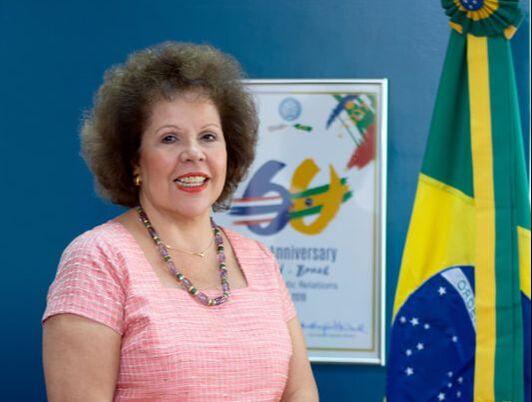
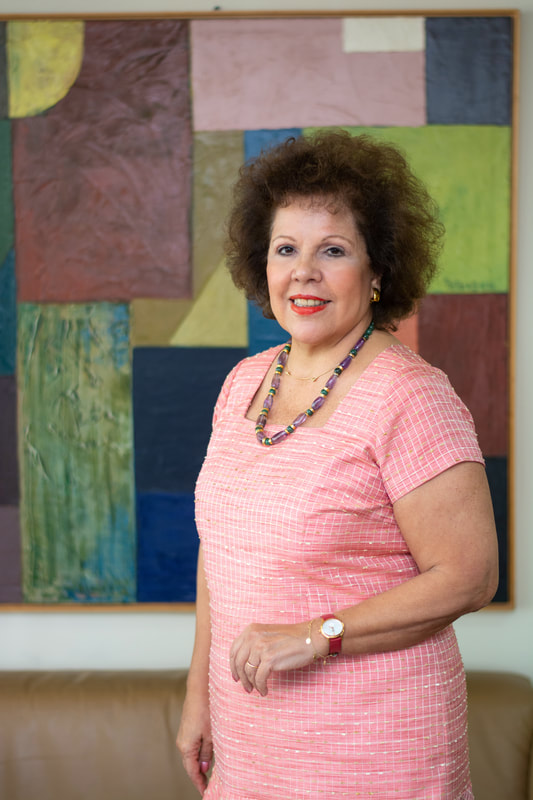
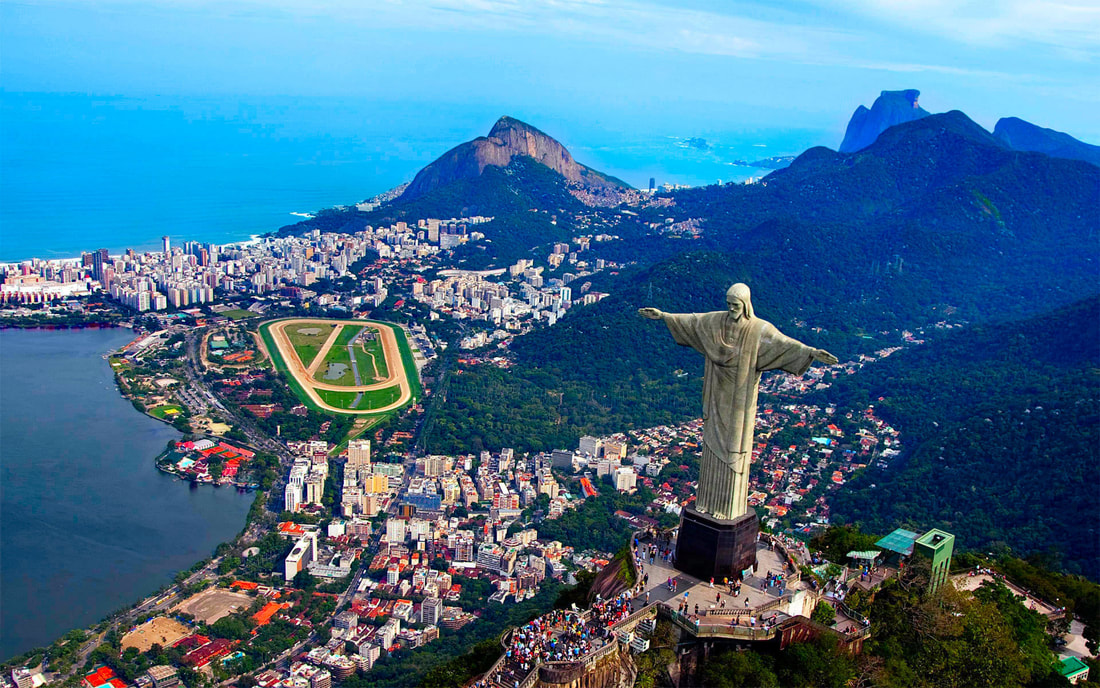
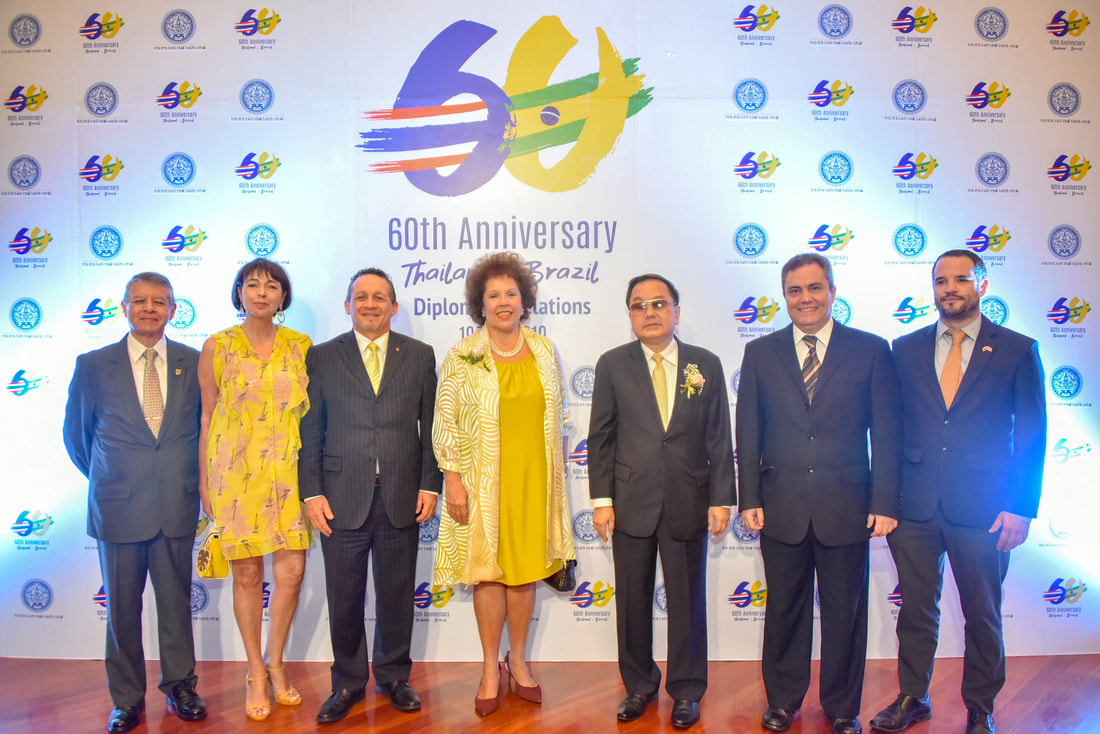
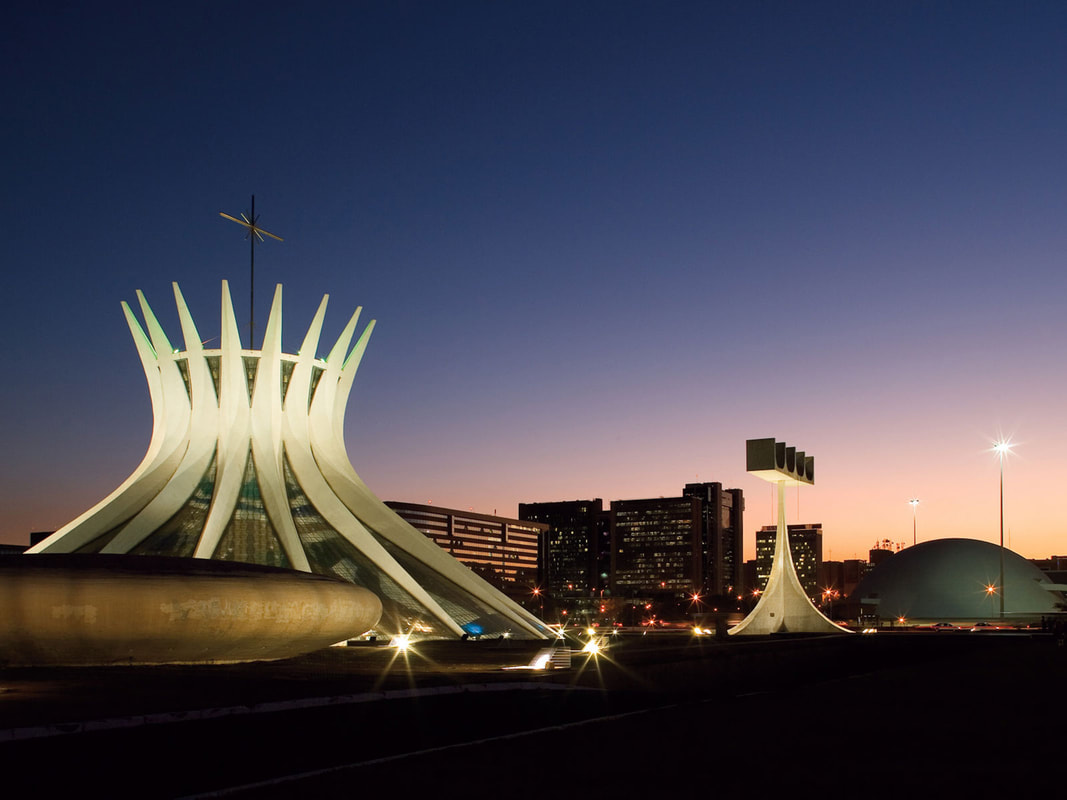
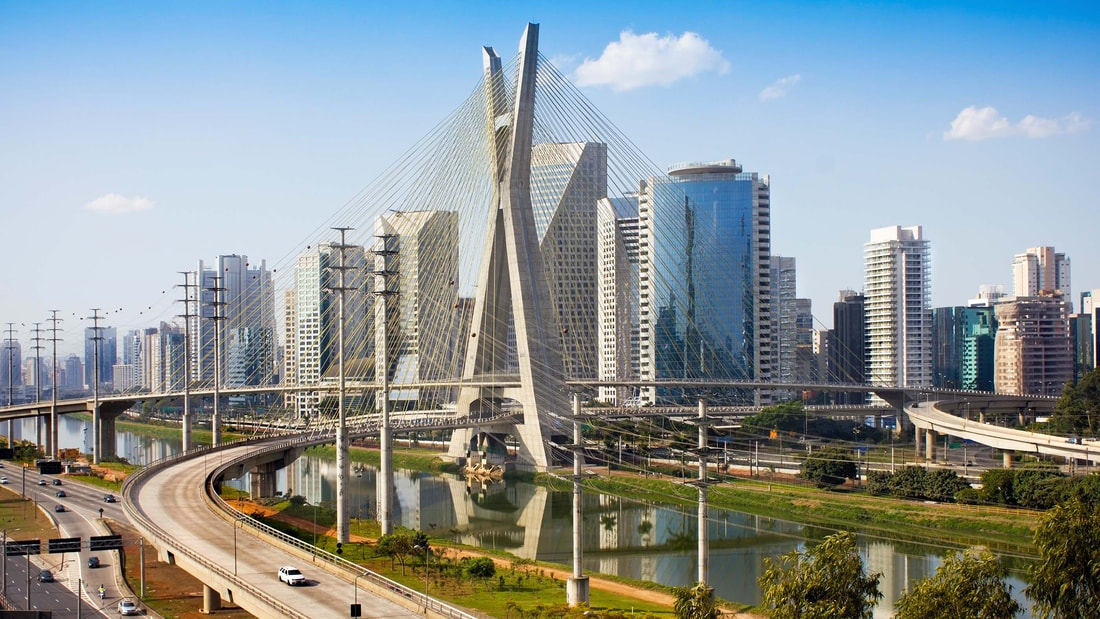
 RSS Feed
RSS Feed
















